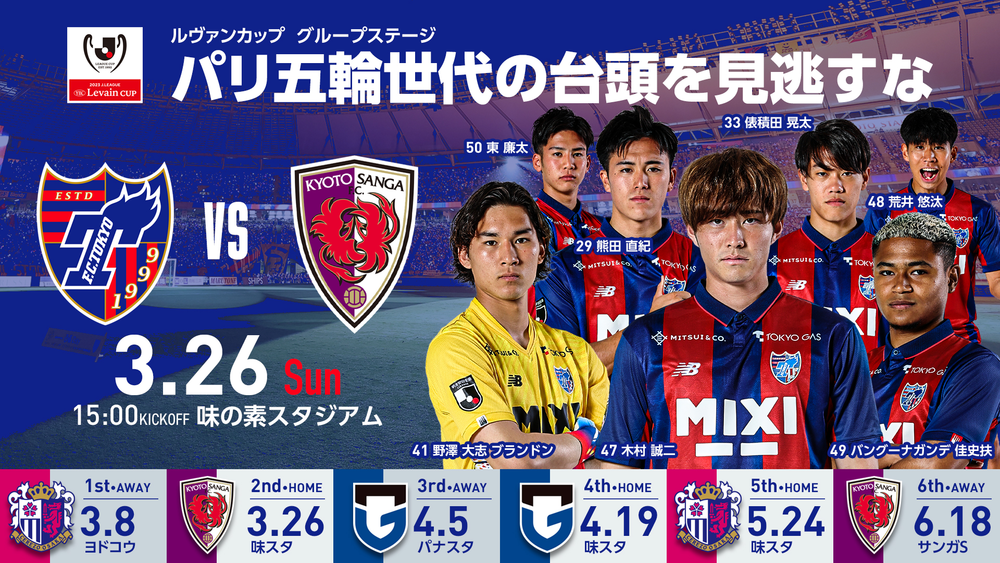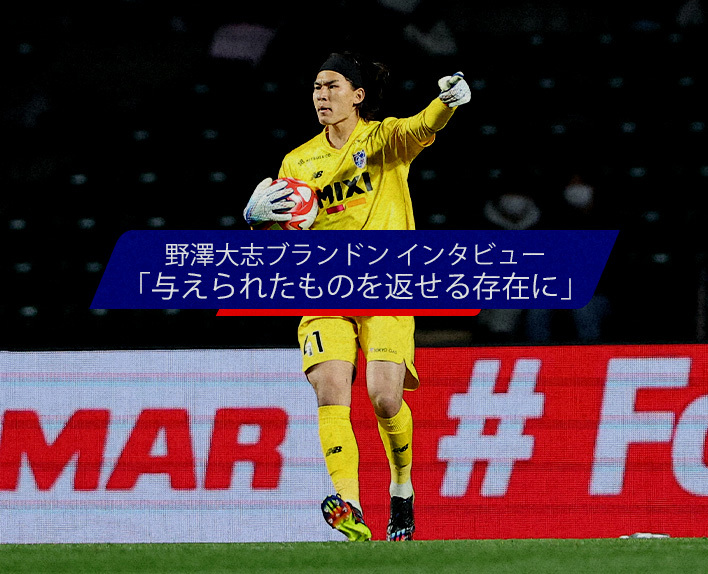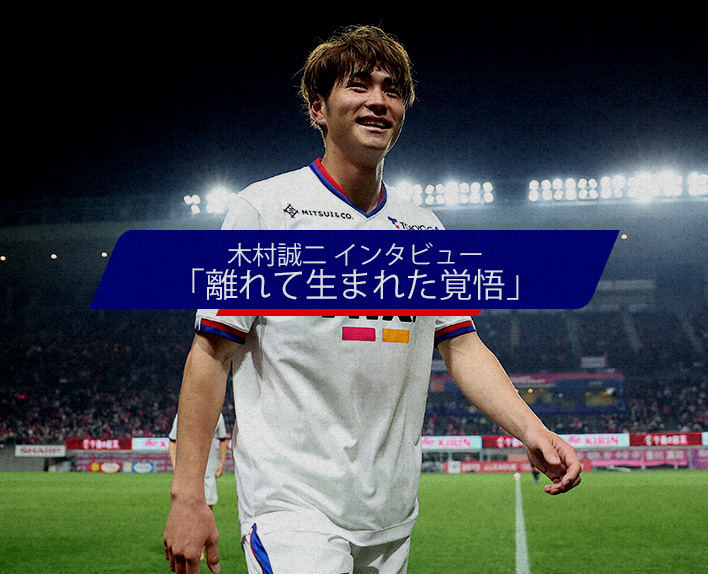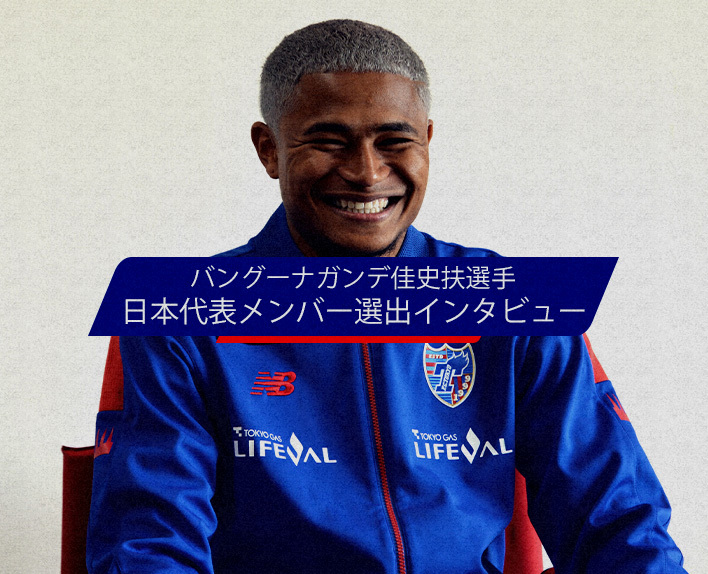Q: You grew up in Okinawa until junior high school and came to Tokyo when you were in high school. You answered that you started aiming to become a professional soccer player at the age of 15, but was the reason for deciding to come to Tokyo to achieve your goal?
When I was in junior high school and thinking about my future, I had a strong desire to dedicate myself to soccer. I received an offer from FC Tokyo U-18, an academy in Tokyo, and decided to join. I made the decision to become a professional player by the time I graduated from high school, knowing that I would be going to Tokyo.
Q: What did you think would be a positive impact on yourself by coming to Tokyo?
I considered it a valuable asset for myself to be able to play at the Tokyo Academy, which is a team belonging to the J1 League.
Q: Have you noticed any changes in yourself since moving from Okinawa to Tokyo?
A, in terms of soccer, I became more aware of professional players because they were practicing on the neighboring field. I increased my training frequency since middle school and my life became centered around soccer. I have memories of practicing a lot and thinking "I have to do more." In terms of non-soccer aspects, I stopped speaking with an Okinawan accent and started speaking in Tokyo dialect.
Q: Did you feel a sense of tension when stepping onto the stage of the J-League in a particularly responsible position as a goalkeeper?
When I was playing in J3, I think I was more desperate about my own play than having a sense of responsibility because I didn't have a clear understanding in my head. I learned the sense of tension from playing for Iwate Grulla Morioka last season.
Q: Please tell us something you were confident about and something you considered a challenge when you were in high school.
A, what I was confident about was stopping shots and protecting the goal. Looking back now, I think the challenge was my behavior as a goalkeeper. At that time, I didn't realize what the position of a goalkeeper was, so I wish I had worked more on my physical fitness and other aspects.
Q, what changes have you experienced between your high school days and now?
A, my personality changed about 180 degrees. I had more opportunities to interact with professional players, and I received help from Akihiro HAYASHI, Tsuyoshi KODAMA, Go HATANO, and Shinichi MORISHITA, the former goalkeeper coach (currently the GK Technical Coach at Júbilo Iwata Academy). There were changes in greetings and language usage. I was the youngest member to join the team, but I realized that the three senior goalkeepers have dedicated their lives to their playing careers, and I also wanted to become like them. I thought it would be disrespectful to behave without respect towards these experienced players, so I realized that I needed to change.
Q, Akihiro HAYASHI (currently Vegalta Sendai) was mentioned as a player influenced by the player profile on the website.
When I was promoted to the top team, I played in the starting lineup. I was also selected for the Best Eleven, which means I was with the best goalkeeper in Japan. I was able to feel Lin's personality up close. By practicing together, I was inspired and motivated to become better.
Q, in the 2021 season, contributed to the promotion to J2 League by going on loan to Iwate Grulla Morioka.
I finished second in J3 and was promoted to the J2 league. I don't really think I achieved it myself, but rather that I was allowed to win. I am grateful that the coach continued to use me. When I was promoted to the J2 league, I vaguely realized that I lacked the mentality and sense of responsibility to play in the matches. Maybe the fact that I was promoted made me look good on the surface, but I had a lot of time to face myself in order to fight in the J2 league in the next season. That period helped me grow and I learned a lot.
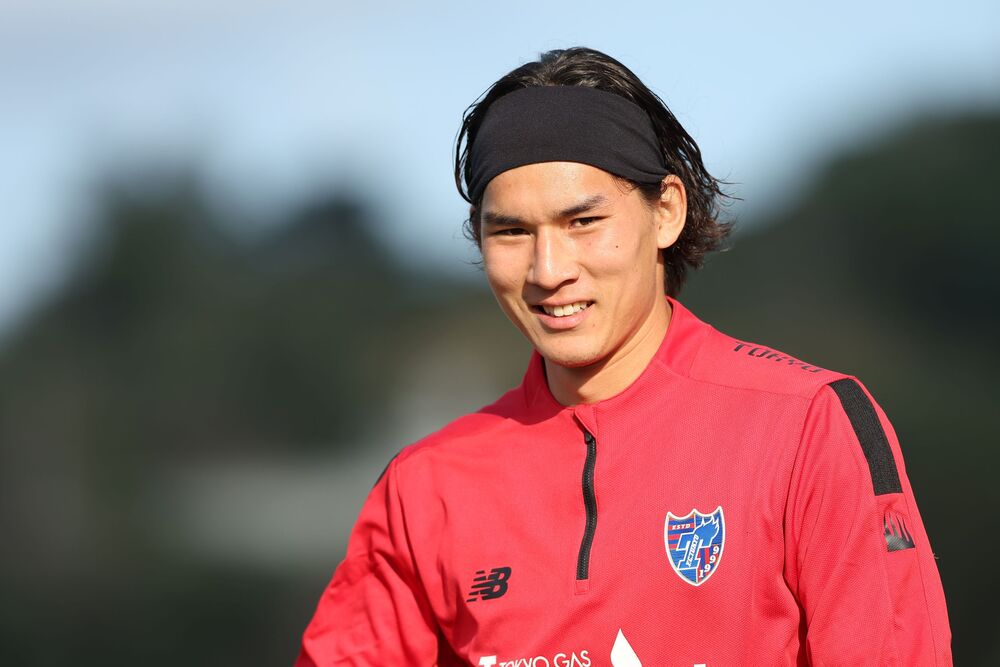
Q: What kind of impact did the experience in Iwate have on player Riku NOZAWA?
Since achieving promotion, I believe that the year spent relegated from J2 to J3 has been a period of growth for me. It is true that the level of J3 is not as high compared to J1 and J2, and I felt a certain comfort in being able to win in J3. I witnessed the harsh realities in J2. Iwate is a developing team that wants to become a better team, so there is a lot of interaction with the local community, and I felt that there is a community with teammates, staff, stadium personnel, sponsors, and many others. I stand on the pitch representing everyone, and the feeling that I cannot be timid became my source of motivation. With the support of various people, I realized that if someone cannot play among the teammates, it would be disrespectful to act inappropriately as the representative player. Thinking this way, a sense of responsibility emerged. Responsibility may not be something you can just take on, but I thought that as I see various things, I might become able to bear that responsibility. It was a difficult period, but looking back now, it was an important time. I believe that it is during tough times that one's heart is refined.
Q: Riku NOZAWA was the first player from Iwate to be selected for the Japan national team. How did you feel when you represented the team and became a member of the Japan national team?
The period I spent representing the team became the starting point for myself. It was a happy title to be the team's first representative player, but at that time, I was only focused on myself and couldn't see what was happening around me. By talking to the national team staff, HAMANO Masaya, the goalkeeper coach, my perspective expanded. I realized that I wasn't just representing Iwate, but that I had been representing Iwate afterwards. After my national team activities, I got injured, but there was a sense of movement that started within me due to the changes that occurred.
Q, is player Nozawa the type to put pressure on himself during games? Or is he the type to get excited?
I think there is a big difference between whether the goalkeeper stands on the pitch with pressure or stands on the pitch excited. I am excited not because of my own skills, but because I want to play in the game and win with the whole team.
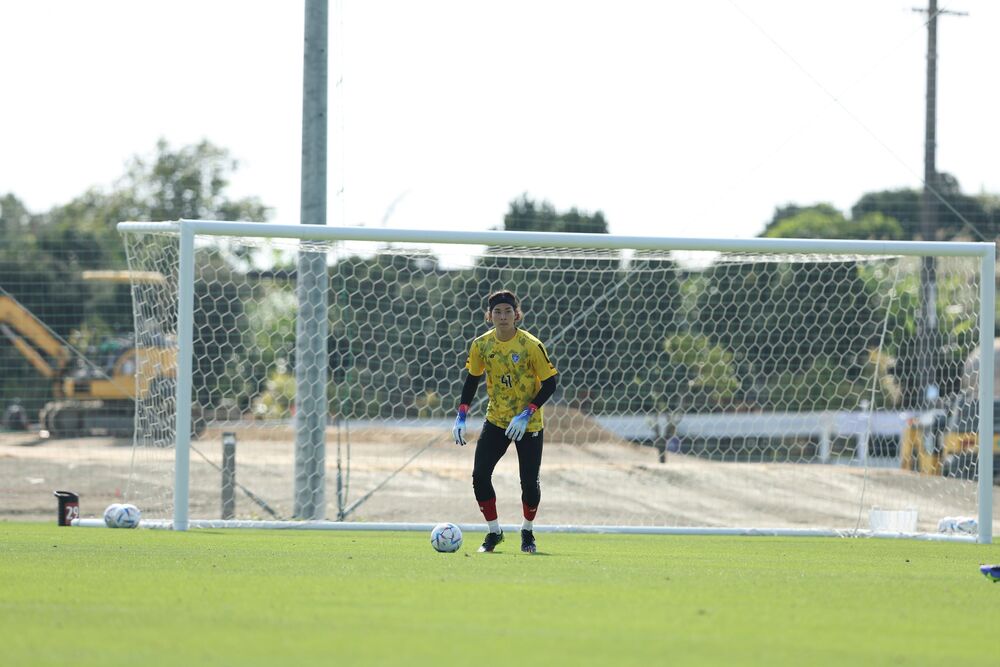
Q, Please tell us how you felt when you decided to return to Tokyo from this season.
A, I am filled with gratitude and a sense of indebtedness to Tokyo. I have always wanted to play in Tokyo and win titles. It was only after reflecting on my life in Iwate that I realized how much Tokyo has given me. I love Tokyo, so I was happy when I was approached.
Q, When you were approached, what did you think Tokyo was asking of player Nozawa?
A, I think they were asking me to stand at Ajinomoto Stadium as an academy graduate.
Q, How is the team atmosphere since joining?
A, Everyone is trying to approach the game by valuing what is in front of them. There are many players who want to improve, and everyone is living without regrets. It is a big thing for me to be able to play with such a team.
Q, Impressions of Jakub SLOWIK and Tsuyoshi KODAMA, and the atmosphere of the goalkeeper team.
A, I have been taken care of by KODAMA since before, and he still treats me well. I have also been able to build a good relationship with SLOWIK and I respect his mentality when facing matches. The atmosphere among the goalkeeper team, including the staff, is good and we are all aiming for higher goals regardless of who will play in the match. I am grateful to be a part of that.
Q, What kind of presence is Kashif BANGNAGANDE, who was promoted from the academy to the top team, and Seiji KIMURA, for Nozawa?
A, Kashif BANGNAGANDE has a clear vision for his future while burning with passion. Seiji KIMURA has a similar position to me, having left Tokyo and seen the outside world. I respect their strong determination to give their all for Tokyo.
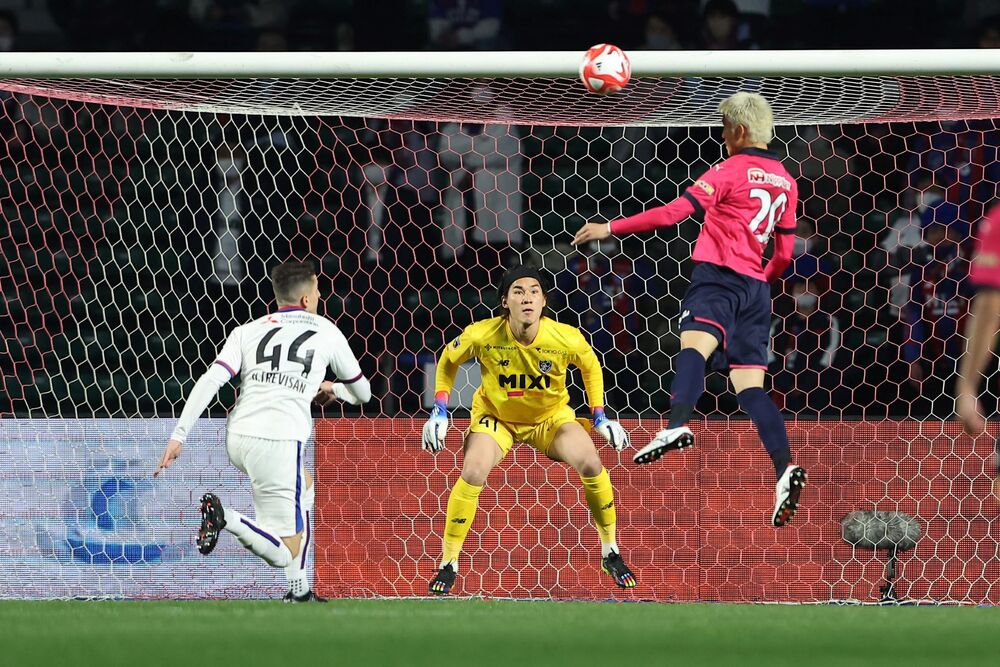
Q, Please tell us the team and individual goals for the 2023 season.
A, We are aiming for both team and individual championships. Personally, I believe that we must live in the present and focus on each day's practice in order to be successful. I want to approach each game with this mindset. Ultimately, I hope to achieve the championship, but I also value the process and believe that it is important to give our best effort and fight until the end, even if the results do not go our way.
Q: Please tell us about your strengths and points you want to appeal as a player, Nozawa.
I want to fulfill my responsibility as a goalkeeper by protecting the goal. When I play in a match, I want to demonstrate leadership in order to defend the goal together with everyone.
Q: In response to the question of what is good about becoming a soccer player, Riku NOZAWA answered, "Being in a position to give dreams and hope to many people as a professional." What would you like to convey to the people around you, NOZAWA?
A, I want to give to many people what I have been given. I have learned how special professional football players are to children and the local community. I want to understand the position I have been given and expand the circle of joy that everyone can share together.
Q: Do you have anything you want to tell children who dream of becoming professional soccer players?
A, only a handful of players can become professionals, but it is natural to aspire and I hope everyone will do their best. I believe in cherishing things of value in life and I think it is a waste to be fully absorbed in oneself. I want to take the time to think about how to convey this to children in the future.
Q: Please give a comment to the fans and supporters regarding the upcoming league matches and Levain Cup.
A, now, the team is fighting with the goal of improving and growing, and we are determined to win every game with the style that the coach aims for. Patience is necessary when the team is not doing well, and I think there are times when fans and supporters need to be patient as well. I want to deliver enjoyable and exciting soccer to watch, and I want to bring victory as soon as possible.
